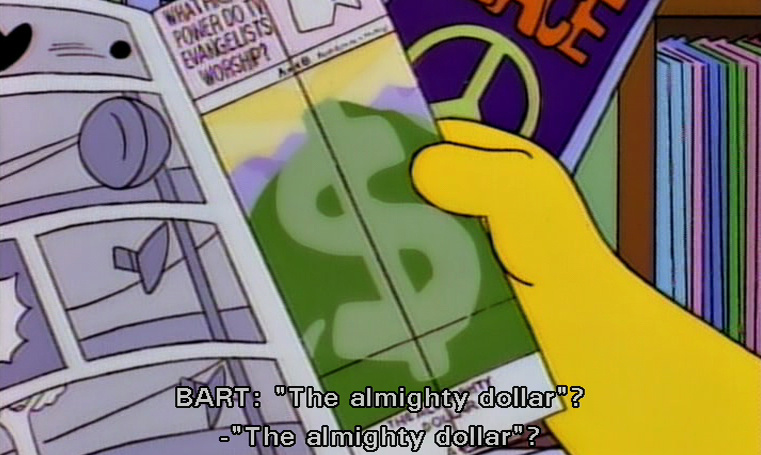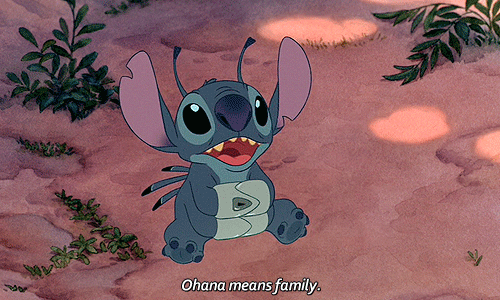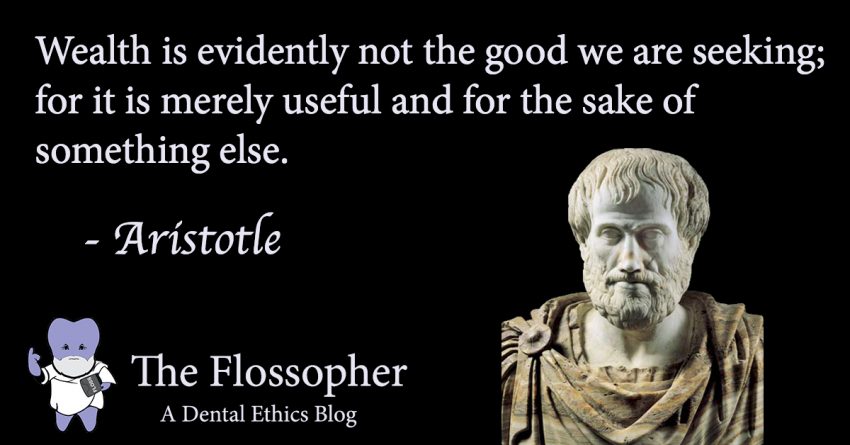Many people claim that when I bring up ethics that my head is “in the clouds.” I take this as a compliment rather than an insult just as Socrates may have viewed the play The Clouds by Aristophanes. Socrates is portrayed as a sophist (someone who argues to confuse but has no substance), literally in the clouds distant from practical living. In this article, I will give a clear and concise explanation why morality is actually practical and show how contrary views have no substance.
The Almighty Dollar

What is the root of all evil? Sugar! Sorry, dentist joke. In my view, it is simple misguided ignorance. People always try to do what is best (for themselves or others) but they do not know exactly what is best. They are told such and such is the right thing to do, but since they do not understand the reasons with confidence, they follow conventions. One of the deepest rooted falsities is the meme that money is the most valuable good in life.
In our capitalistic culture, everything is measured in terms of a dollar value. Your worth has an hourly rate and everything has a price. Currency in-itself, however, does not have much worth; it is just stamped paper or coins. Money represents value (extrinsic worth) because it can get you goods that have value in-themselves (intrinsic worth).
Aristotle illustrated that everyone seeks things for an ultimate purpose, namely happiness. We work to get money, we buy things with money, those things give us joy, and ultimately happiness. Since the value of money is conditioned in terms of another, it cannot claimed to be the most valuable good in life. Those who chase money are chancing mere shadows (a representation) of real value.
Practical Reasoning
Moral reasoning deals with the rational evaluation of means and ends. An end is a desire or goal we have that motivates actions and the means is the set of actions we take toward an end. Only reason can calculate the worth of the end versus the cost of the means, telling us the overall value of an ethical situation. While we can speculate about the worth of a goal, this type of reasoning however does not tell us what to do with that information.
Aristotle first made the distinction between speculative and practical reason to help us in ethical decision making (read Intro to Dental Ethics). In a practical syllogism, we identify a general moral command (all agents should do X), recognize that this principle applies to us particularly (I am an agent), and then finally we act (I should do X). Moral reasoning is practical because it is prescriptive (i.e., calls us to act).
Absolute Worth
We use practical reason to figure out which goals are most worth pursuing and outline which means are legitimate to use. Value determined though blind feelings or through dogmatic opinions are meaningless as the following illustrations.
Lets say I charge X dollars (a representation of value) for veneers. I can claim that I derived the fairest price though mathematical proof or maybe even asked an educated expert. It is difficult, however, to conceive absolute value for everyday objects because people see value per their unique situations differently. We cannot blindly listen to prices set by experts because others cannot tell us what to feel or desire. Even if a thing has some value and we have the means to obtain it, this doesn’t mean we are obligated to pursue it.

I discuss in The Highest Good: Humanity that only autonomy, the directive to live life obligated by the conception of law, has absolute value. Universal laws demand respect by all agents and obligate necessarily. Humans are not objects (only extrinsically valuable) but subjects (intrinsically valuable), sources of value and meaning, so cannot be reduced to finite amounts of money or material goods. A good will (autonomous agent) has absolute worth. Humanity dignity has not finite price and autonomy cannot be sold.
Human Nature

People are presented with idealistic systems, such as, humanitarianism, communism, etc. and they view moral thinking as dreaming up utopias. As I have shown above, ethics is practical since we find value and meaning in individual actions or at a societal level.
Some may object that change or any progressive thinking is fantasy. They may claim that people have always used the systems in place and change is not possible. This however is a logical fallacy. Just because people have always acted a certain way or may seem programed to act a specific way (Stitch) does not necessarily mean they must do so.
Humans are autonomous agents who are free to act differently based on different rational motives. What limits us is our own ignorance of absolute worth, our human dignity.
My 2 Cents
Money is not good or evil in-itself, but a means to certain ends. It represents value and should not be confused with it. People chasing money as the ultimate good are chasing shadows.
One may say I am thinking too much about this. A wise person told me once that thinking too much is better than not thinking at all.
Practical reasoning allows us to extract value and meaning. If I act without a reason like a rock rolling down a mountain side, I cannot say there is value or meaning in that without rational evaluation. I must be a rational agent like Sisyphus that can measure the worth of his actions and find meaning in his struggle. Value and meaning are abstract concepts real in our minds and cannot be for a thoughtless animal. The unexamined life is not worth living for a human being says Socrates.
Author
Dr. Vishnu Burla, DDS, BA Philosophy
Further Reading
Why be a Good Dentist? I explain why moral principles must be universal to receive absolute recognization and necessary to be obligatory.
Grounding of the Metaphysics of Morals by Immanuel Kant.

Facebook Comments